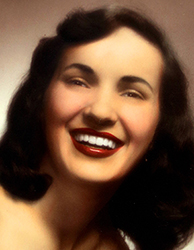The Longstone Lighthouse, located on one of the Farne Islands, was built in 1826. In 1838 a paddle steamer crashed off the Northumberland coast. From her bedroom window, Grace Darling, the lighthouse keeper’s daughter, could see the wreck and some of its survivors on a nearby rocky island. Grace and her father rowed out into the rough sea to rescue them.
News of Grace’s bravery reached the newspapers. Overnight she became a national hero. Queen Victoria praised her and artists from all over England sailed to the lighthouse island hoping to paint her portrait. Other admirers sent money and gifts. But life on a pedestal did not last long for Grace. Just a few years later, she died of tuberculosis. Grace was only 26 years old. The Heroine of the Farne Islands was now a part of national mythology.
Heroes are important in a society. They act as inspiration and as examples in overcoming adversity. They help glorify man and thus elevate the human spirit. But most importantly, they give us hope. And what is hope if not belief in the future?
Heroes inspire us to be heroes, too, even if just for one day.
Heroes are also useful for propaganda. Propaganda has been utilized throughout history to move the minds of the masses in a particular direction.
During the 1930s, Germans made many Nazi propaganda films. The most notable were those directed by Leni Riefenstahl. Mussolini had the Cinecittà* movie studios constructed just for the sake of promoting Fascist ideals. The British government, realizing that it needed a psychological commitment on the part of its citizens, began orchestrating their own propaganda. In her novel, The Finest Hour and a Half, Lissa Evans affronts this need.
It’s 1940 and France has fallen to the Nazis. Bombs are falling on London and the people are frightened and confused. What is needed is a morale boosting movie to inspire courage. But also to attract American interest.
So the Brits decide to make propaganda films of their own. But the war has dislocated the movie industry’s top talents. Nevertheless, a film production company is improvised by the Ministry of Information. Part of this new milieu is Catrin Cole conscripted by the ministry to go from writing ads to writing dialogue for propaganda films.
Now all they needed was a “true” story on which to base their film. This need was met when news broke out about twin sisters, Lily and Rose Starling, who supposedly helped to evacuate soldiers fallen at Dunkirk. Their story was similar to that of Grace Darling and no doubt would move the public.
Catrin takes a long train ride to interview the sisters only to learn that they had never reached Dunkirk because their boat broke down. But the propaganda machine had already been set in motion. And, for her own survival, Catrin helped embellish a lie—propaganda is not about truth in as much as it’s about truth as we would like it to be.
Evans’ book evolves mainly around the comic absurdity of making a film in that way at that time and how war influences the actions and interactions of those involved.
The book gets its name from a speech by Winston Churchill known as “This was their finest hour”. It was June of 1940 and Churchill had been Prime Minister for just a little over a month. What he wanted to do with the speech was convince the brits of the need to continue the war and that there was a reasonable hope for victory. Furthermore, it was up to Britain to save the world. Because “if we can stand up to him, all Europe may be freed” otherwise the world “will sink into the abyss of a new Dark Ages…” that’s why the British must brace themselves to their duties then even a thousand years later of them will be said “this was their finest hour.”
We are all governed by propaganda in some way. Being an autonomous thinker can be very fatiguing. So we often seek narrations to refer to. Many groups (cultural, religious, political) are united by a common narration of reference. Many people are often united not by personal creeds but by common propaganda. Many people base their ideologies on convincing propaganda.
How many identities are formed not by personal thought but on just wanting to belong somewhere?
*After WWII, Cinecittà was used as a refugee camp. Then in the 1950s, because of its location and low production costs, it became popular with foreign film makers earning it the name of Hollywood on the Tiber.
Related:
Rear Face Rowing
Wreck of the ‘Forfarshire’, 7 September 1838 by T L Leitch + ‘Their finest hour’ speech by Winston Churchill, 1940 +
Bibliography:
Evans, Lissa. Their finest hour and a half. Doubleday. London. 2009. Read on Internet Archive HERE








